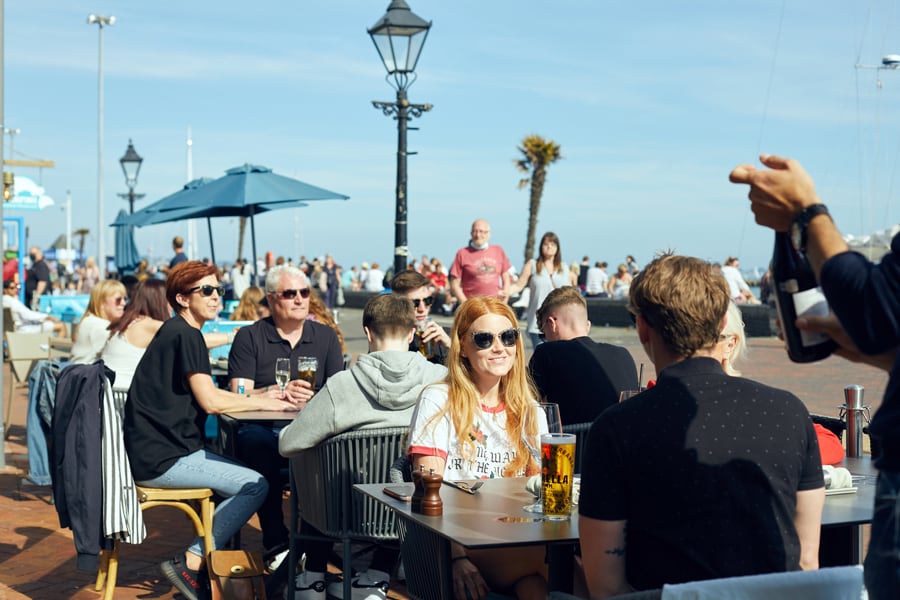
England postpones 'Freedom Day,' extending Covid-19 restrictions a month
Hospital admissions have begun rising and the impact of the Delta variant across the country has already incited alarm in other European countries including Germany, which has introduced a travel ban
 People sit at outdoor tables at a cafe on the waterfront in Poole, southern England, on May 30, 2021. Under the current rules, pubs and restaurants can operate but with limited capacity. (Suzie Howell/The New York Times)
People sit at outdoor tables at a cafe on the waterfront in Poole, southern England, on May 30, 2021. Under the current rules, pubs and restaurants can operate but with limited capacity. (Suzie Howell/The New York Times)
With a rapid and successful vaccine campaign on track, the path seemed clear not long ago for Prime Minister Boris Johnson to scrap all of England’s coronavirus rules on June 21, ending curbs that he resisted imposing in the first place.
But on Monday, Johnson postponed by four weeks the moment dubbed “freedom day” by the tabloids after a spike in cases of a highly transmissible new variant that may cause more serious disease than earlier variants. Restaurants and pubs in England, while open, will still have to observe social distancing rules indoors, limiting capacity, and nightclubs and theaters will remain firmly closed.
The decision, which will be reviewed in two weeks, sent a warning to the world that even well-vaccinated nations remain at risk and angered a noisy caucus of libertarian lawmakers within Johnson’s own party.
At present, overall new cases in Britain are averaging around 8,000 per day and are doubling every week in the worst affected areas. Hospital admissions have begun rising. And the impact of the Delta variant across the country has already incited alarm in other European countries including Germany, which has introduced a travel ban.
In Britain, around four-fifths of adults have received one dose and more than half have had a second shot. But people with only a single dose remain susceptible to cases of the Delta variant — more so than to earlier versions of the virus, scientists said. And an unabated surge of infections in younger, unvaccinated people could ignite a dangerous wave of hospitalizations.
©2019 New York Times News Service




